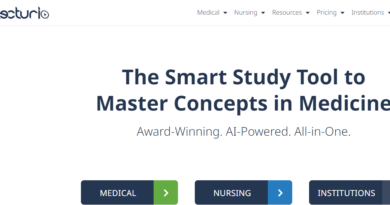What Knowledge Matters in Health Professions Education?
- Importance of acquiring the right knowledge in health professions education
- Overview of the key areas of knowledge that are crucial for students
As future healthcare professionals, it is critical for us to comprehend what knowledge in our academic endeavors is genuinely important. With the healthcare industry changing so quickly, it’s essential to concentrate on learning the skills and knowledge necessary to succeed in the health professions education we have chosen. Let’s look at some of the knowledge’s most crucial components.
Basic Sciences: Laying the Foundation
It’s crucial to lay a solid foundation in the basic sciences before advancing into more specialized fields of healthcare. This covers topics including pharmacology, biochemistry, anatomy, and physiology. For the diagnosis and treatment of a variety of health disorders, it is essential to comprehend the underlying concepts that govern the human body and how it works.
Clinical Skills: Putting Knowledge into Practice
Although theoretical understanding is essential, it’s also crucial to build good clinical abilities. This entails practical instruction in executing various medical operations, including physical examinations, and collecting patient histories. By developing these abilities, we may successfully use our knowledge in practical situations and deliver the best possible patient care.
Evidence-Based Medicine: The Power of Research
Evidence-based medicine is important in the current healthcare system. It entails fusing the most cutting-edge scientific data with clinical know-how and patient values. We can make educated decisions and give our patients the greatest care by keeping up with the most recent research and learning how to critically assess medical literature.
Communication and Interpersonal Skills: Building Trust and Empathy
Treatment of ailments is only one aspect of healthcare; personal interaction with patients is another. In order to establish rapport, foster trust, and offer emotional support to patients and their families, effective communication and interpersonal skills are essential. Delivering patient-centered care requires learning how to empathies, actively listen, and communicate complex medical facts.
Cultural Competence: Embracing Diversity and Inclusion
As healthcare practitioners, we work with a variety of people from various cultural origins and worldviews. It’s crucial to cultivate cultural competency, which entails comprehending and accepting cultural distinctions in beliefs, practices, and values. We may offer individualized treatment programs that take into account each patient’s particular needs and preferences by embracing diversity and making sure that inclusive care is provided.
Ethical and Legal Considerations: Upholding Professional Standards
Healthcare providers must abide by moral and legal rules that direct their work. For the sake of patient safety and professional integrity, it is essential to comprehend these principles. To make morally responsible decisions in difficult circumstances, it is important to completely understand subjects like patient confidentiality, informed consent, and end-of-life care.
Health Promotion and Disease Prevention: A Holistic Approach
An important part of healthcare is disease prevention and health promotion. We can adopt a preventative strategy by being aware of the elements that lead to illness development and understanding techniques for health promotion. We can greatly lessen the cost of sickness and enhance the wellbeing of people and communities by putting a strong emphasis on preventive measures.

Embracing Lifelong Education
New research, technologies, and therapies are continually being developed, causing the health professions education to constantly change. Therefore, it is essential for healthcare practitioners to embrace a lifelong learning perspective. We may ensure that we deliver the best standard of care throughout our careers by staying informed about the most recent developments in our respective disciplines and actively looking for chances for professional growth. IN conclusion, a vast range of knowledge domains are covered in health professions education.




